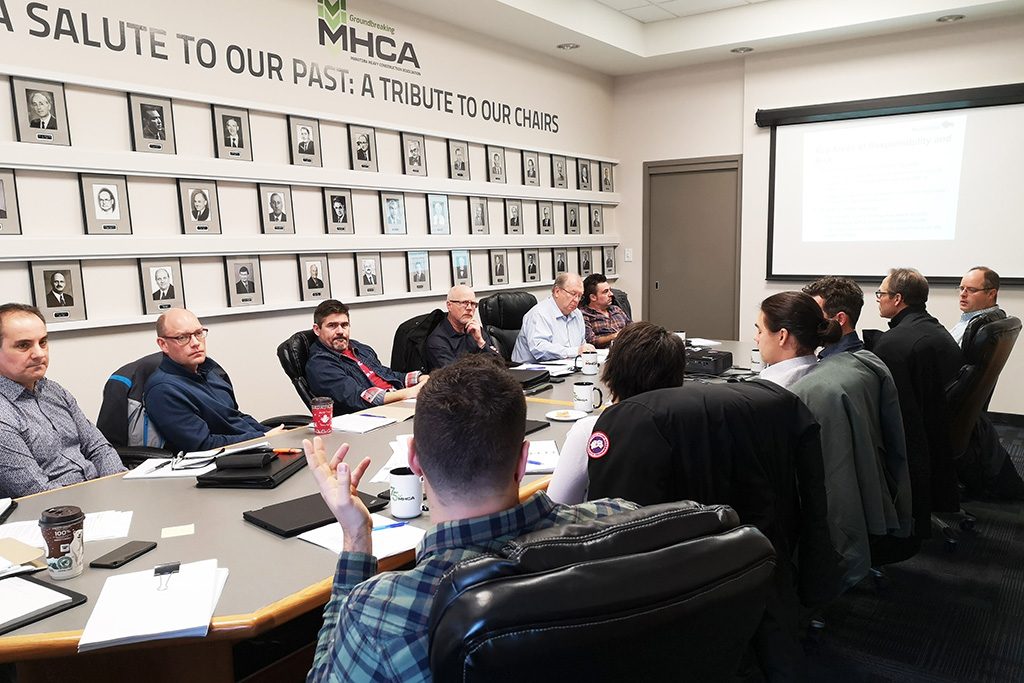WINNIPEG, MAN. – Manitoba associations and the province’s infrastructure ministry are closing in on a new specifications approach.
Senior executives from Manitoba Infrastructure (MI) met with Manitoba Heavy Construction Association (MHCA) member representatives on Dec. 11 to review MI-proposed specification changes to be implemented in yet-to-be chosen projects in 2020. Association of Consulting Engineering Companies – Manitoba (ACEC – MB) was also involved in consultations.
“We’re essentially trying to move away from message-based specifications to the end product and transferring risk for quality control (QC), quality assurance (QA) and outcomes to the construction industry,” MHCA president Chris Lorenc said.
The four specifications reviewed were Construction Specification for Granular Course, Quality Based Specifications for Bituminous Pavement, Material Specification for Aggregate – Granular Course and Requirements for Contractor’s Quality Control Plan (Bituminous).
Under the new system, QC control would shift to the construction industry and payment for work will be adjusted based on the quality of work of the product built or reviewed.
“You’re bidding work to build a product. You test things in the process of managing this product, and verify the QC, QA and that the end product is what we tendered and bid on,” Lorenc said.
The next steps include a 45-day period where MI will further edit the specifications affected by MHCA and ACEC – MB consultations before next to final specifications are circulated for final review. A joint training session between the three organizations will also take place in support of rolling out the new specifications into 2020 pilot projects.
“We said (to MI) we want to pilot a couple of projects in 2020. We think that’s a good idea and we want to see how the shift works in the field,” Lorenc said.
Impacts of the changes will be measured following project completions before further changes are implemented in 2021, an MHCA release stated.
“We think the process they’re proposing is a good one. We see it happening more often contingent on successes and perfection imperfections and flaws,” Lorenc said.
“There will be a transition period of transferring risk, and bidding will reflect the extent to which that risk is unclear. We’ve tried to impress on MI the importance of transparency for quality assurance and quality control. These things can’t be a matter of someone’s opinion,” he added.
“If you aren’t able to achieve an objective assessment based on objective engineering principles you introduce uncertainty, which is risk, and if you try to shed ‘soft costs’ you lose objectivity,” Lorenc said.
While the MHCA and the current provincial government have diverging opinions on infrastructure implementation, Lorenc said working with the administrative branch of the government is different.
“We’ve always had a good relationship with the administrative branch, and the political and administrative branches are two different entities. One is the executioner of policy and the other is the creator of policy,” he said. “We’ve had our agreements and disagreements with administrations, but that’s normal and not problematic.”
The administrative branch is taking direction from the executive, Lorenc added, and one of the top priorities is finding ways to reduce costs to the public.
“One of the ways (to do that) is end-product specification and going to external engineering rather than working in-house. We’ve recommended to government that if they choose to go that way, go qualification based, so it’s an efficient process through which the purchaser can use and retain knowledge services,” Lorenc said.











Recent Comments
comments for this post are closed